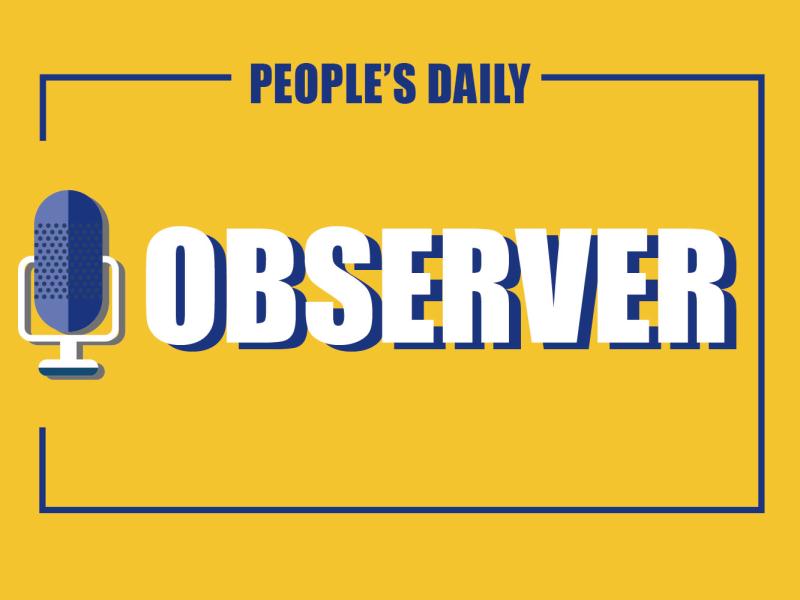
In America, where the news cycle has always been measured only in days or even hours, the novel coronavirus’ continuous dominance of the headlines has apparently left many people feeling anxious and angry. However, such feelings, strong as they are, do not affect the stubborn spread of the virus.
In the past days, there has been a clear resurgence of COVID-19 cases in the US. More than 40,000 new cases were reported on Saturday. This is an irksome reminder to many Americans busy rebooting the economy that the pandemic is not gone yet.
For the moment, the US still has the highest number of infections and deaths in the world. This very fact is both tragic and, to a large extent, incomprehensible. Most people will admit that the US has the most advanced health-care system in the world. At the same time, the country was not among the first hit by the epidemic. In other words, the US has plenty of time to prepare. But it turns out that, even at this moment, the country is still not ready.
This is a virus that punishes slow action. Why has America been unable to catch up? Many public health experts believe that the failure of public officials, especially the White House, to communicate the threat with one voice during the outbreak has led to a muddle in the information needed to contain the epidemic. To this day, the idea that the virus is just another flu is still resonant with many people. This was exactly what the concierge at my apartment building told me not long ago. When the nice lady spoke to me, her mask was hanging under her chin.
It has been proven not easy to convince some Americans that claims from the White House or president are not necessarily true. According to a Pew poll, almost three in ten Americans believe that novel Coronavirus was created in a lab, even though scientists have determined that it cannot be artificial. Faced with such figures, you can't even blame the people who believe the false claim. After all, their sources are the president or America's top diplomat.
Of course, there is no evidence that the scientific literacy of the American public is lower than people in any other country. What is clear, however, is that American public attitudes towards science may be more divided than in most countries. In America, how science is viewed seems to be a political issue. To feel the political energy such debates can raise, you just need to take a look at the heated exchanges around the country's leading infectious disease expert during this outbreak.
Anthony Fauci is the top expert on the White House COVID-19 response task force. Since the Reagan era, the renowned epidemiologist has helped six US presidents deal with public health challenges. However, Fauci's role in responding to this outbreak is far more complex than providing scientific advice. As the Vanity Fair put it, Anthony Fauci is “waging a war -- a war of persuasion”, and he has to “convince a diverse, federalist, hyper-partisan country to take the threat of the virus seriously”.
So far, Fauci is still struggling to win his war of persuasion. Although the US has become the worst-hit nation in the world, there are still significant differences in the response to the epidemic among different social groups within the country. According to a recent CNN report, Republican Rep. Louie Gohmert spent ample time on the House floor not wearing a mask, often talking with aides and lawmakers at length while not maintaining social distance. What is certain, of course, is that his behavior is indeed “representative” of many conservative groups that tend to defy advice of public health experts in response to the outbreak.
Research conducted by Syracuse University political scientists found that partisan inclination actually is a better predictor of how ordinary Americans would respond to the outbreak than education, income, or geographic differences. Even Fauci himself has become a point of contention in this partisan divide. Attacks on the scientist have long been common among conservative groups. Some conservative politicians argued that Fauci's policy proposals are causing "economic disaster.”
In the highly divided American society, people have been receiving completely different information from different channels for a long time, so that it is difficult to reach consensus on objective facts related to this COVID-19 epidemic, let alone the policy response to it. One of the most famous statements during this epidemic is from Texas’ Republican Lieutenant Governor Dan Patrick. Patrick expressed opposition to tough containment measures by saying many older people, including himself, would rather die for the young to save the economy.
A country shows its true colors in times of crisis. As a European journalist observed, American society has consciously maintained a “social distancing” divide on a political level for decades. A striking example is the different perceptions of the public role of scientific experts. Last August, a Pew study found that 73 percent of Democrats thought scientific experts were better at making science-related policy decisions. Among Republicans, only 43 percent hold that view. To many conservatives, "science" is just a cover for liberals to advance their own political agendas.
This split is clearly hampering the US response to the current outbreak. Arthur Caplan, professor of bioethics at New York University Langone Medical Center, told me previously that American conservatives' free-market ideology over science was preventing a strong national response to the outbreak. The recent resurgence of the virus in many states surely proves his point again. For years, American society has become somehow inured to pervasive political division and the policy paralysis that has accompanied it, but the cost of such split amid a once-in-a-century pandemic is obviously too high for either side to bear.


